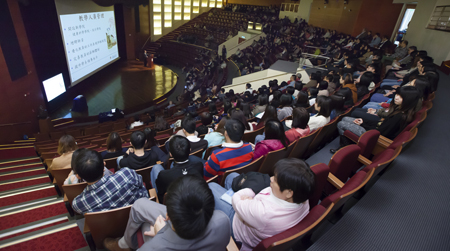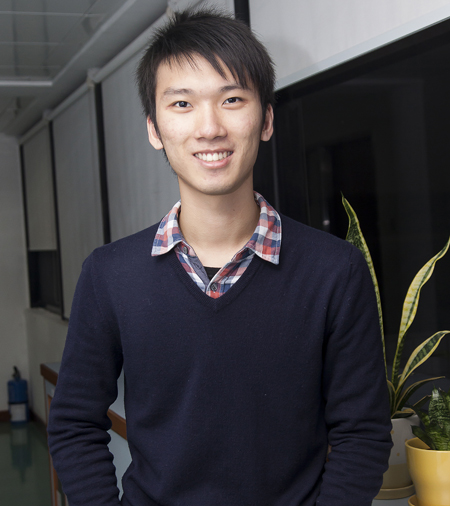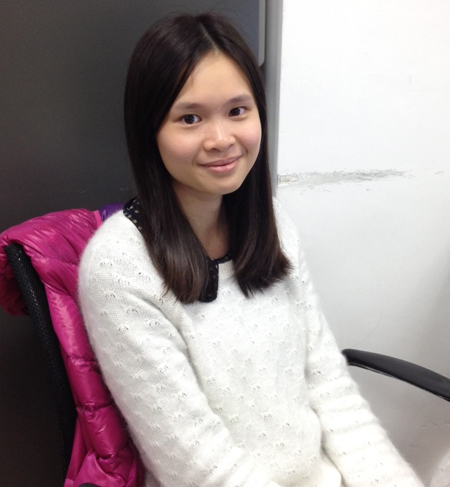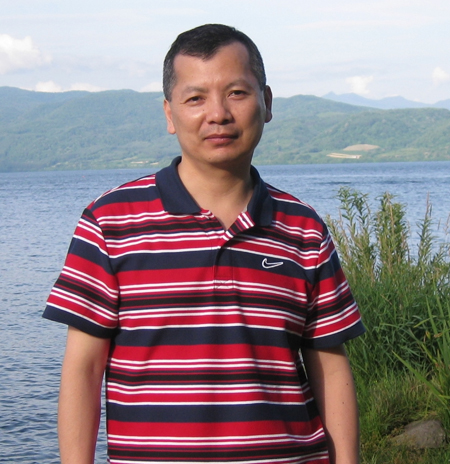UM holds Town Hall Meetings on a regular basis—sometimes once a month, sometimes once every other month—in an attempt to improve internal communication. In November alone, UM held four Town Hall Meetings, one of which taking place on the new campus. Many students, faculty members and administrative staff attended the meetings to keep abreast of the new developments of the university.
At those Town Hall Meetings, the top management shared new developments and arrangements concerning the new campus as well as the numerous strategies for improving the university in various areas, including communication with the government and community, mode of education, faculty management, as well as research and postgraduate curriculum. Questions from faculty members and students revolved around new campus accommodation and transport as well as other issues of direct relevance to their work and study.
Prof. Cheng Chun Wai, associate dean of the Faculty of Education, noted that some issues can’t be solved overnight, and the key is to help the relevant stakeholders to better understand the situation, adding that it was a very good idea to have the rector and vice rectors explaining in detail the university’s new developments in various areas and answering questions from faculty members and students during the Q&A session. He suggested passing notes to the speakers as an alternative way of asking questions during the Q&A session.
University Strategies
Ties with the Government and the Community
The new campus helps to improve the university’s “hard strength”, which calls for the improvement of its “soft strength”. And to achieve this end, the university is going to make major revisions to the UM Charter. Concrete measures will include actively involving alumni and the Alumni Association in university affairs, as well as establishing a community service centre, a higher education information centre, and a biomedical instrument centre, to strengthen ties with the community.
Student Development and Mode of Education
The university is also going to implement the “4-in-1” mode of education on a full scale, which will entail improving general education, implementing research and internship education, building residential colleges with distinctive character and constantly improving their mode of operation, as well as increasing student intake and expand the scope of exchange programmes after complete relocation to the new campus.
Faculty Management
With a new faculty—the Faculty of Health Sciences—and other faculties to be established in the near future, the university will have more academic programmes, more students, and more faculty members. To develop a strong faculty team, the university is going to review the performance appraisal system and improve the remuneration system.
Scientific Research and Postgraduate Curriculum
On the research front, the university is going to identify key research areas, establish a centre for key research projects, promote multidisciplinary research, increase investment in research, and provide guidance and support for students wishing to start their own business. In addition, UM is reforming the postgraduate curriculum to make it more convenient for working people to pursue further education.




